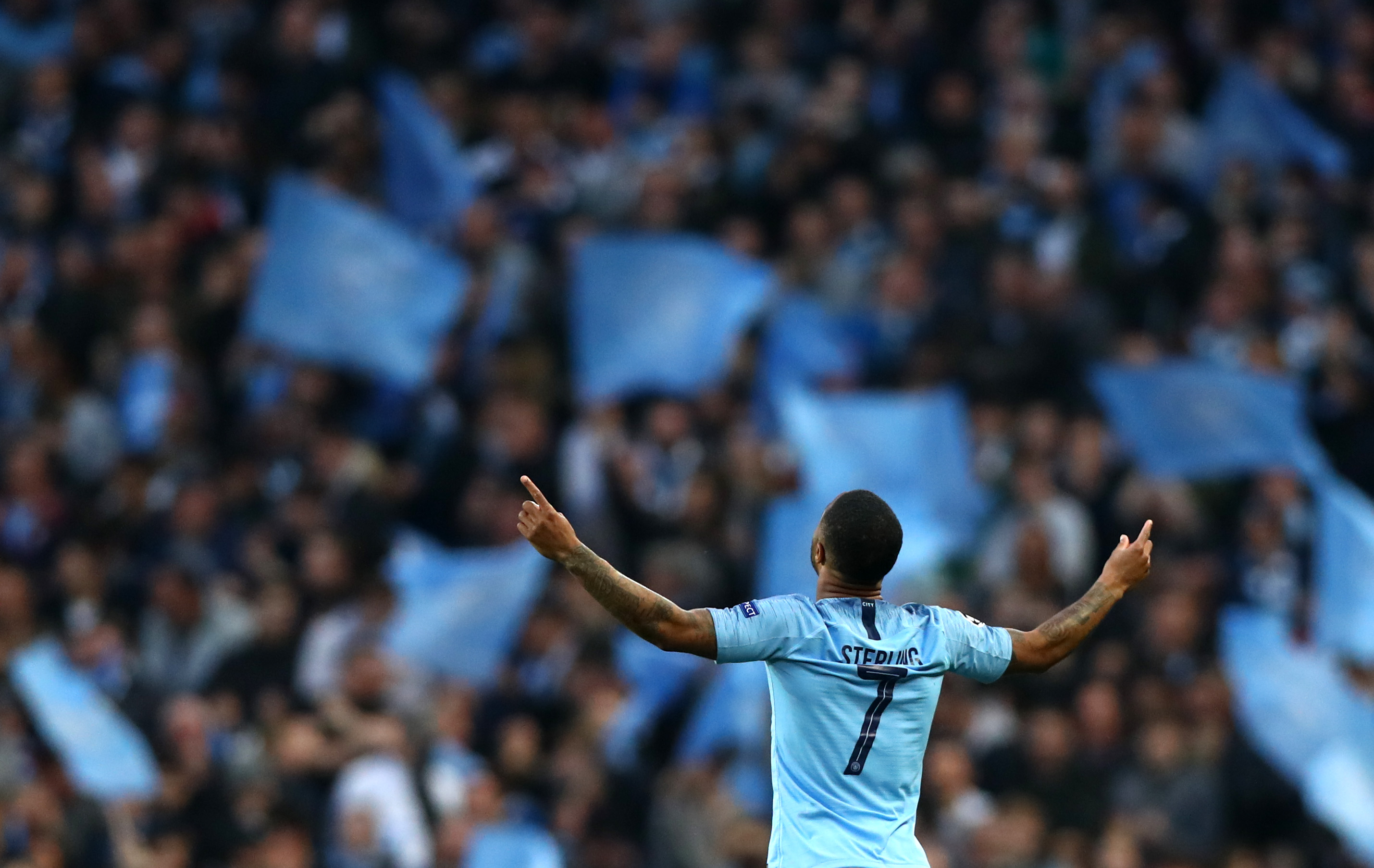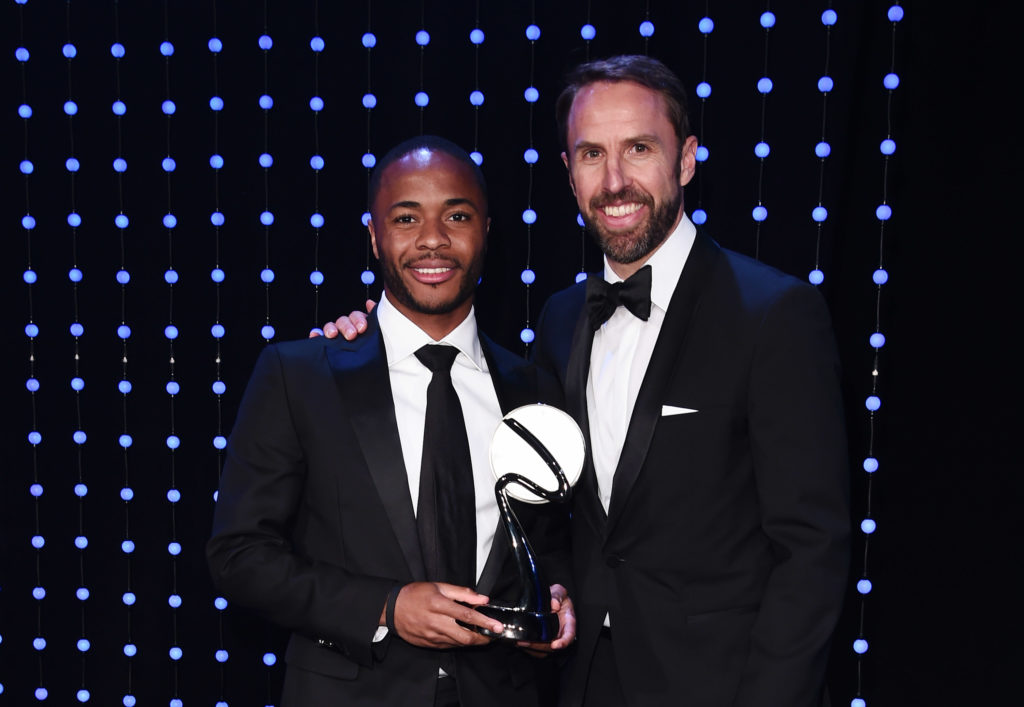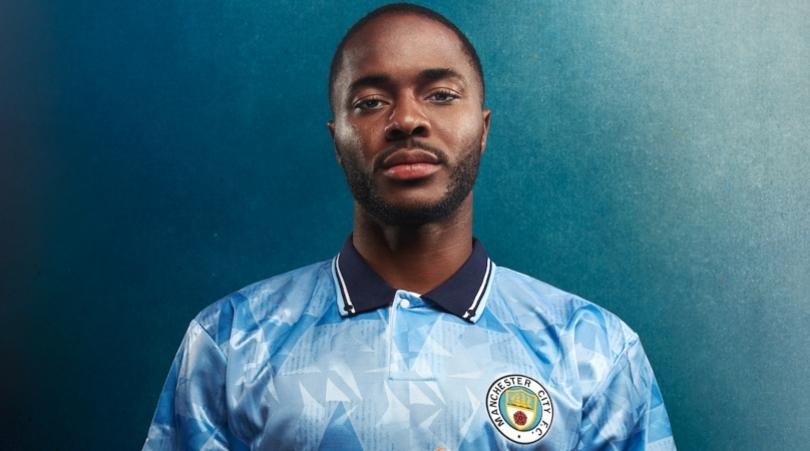
Fresh from picking up the Integrity and Impact Award at last week’s BT Sport Industry Awards, Raheem Sterling was this week named as the Football Writers’ Association Footballer of the Year, one of English football’s most historic and prestigious personal honours. Of the 400-strong FWA membership, more than 60% voted for Sterling, with new FWA chair Carrie Brown describing the Manchester City forward as a ‘player of style and a man of substance’.
A ‘man of substance’ is something not even the most casual football observer would’ve tagged Sterling as this time last year – yet here we are, at the climax of another dramatic domestic season, applauding a man who has quite frankly achieved a Lazarus style transformation akin to the 2015/16 Leicester City vintage in terms of his PR image.
The fact that the FWA vote put Sterling more than 100 votes ahead of nearest rival and winner of the PFA Player of the Year award, Virgil van Dijk, shows just what a transformational process Sterling has undertaken.
So, what has gone so right for Raheem?
First, let’s turn the clock back to 11th July 2018. The nation is riding a crest of a wave as a blistering summer magnifies by the day with the heady progress of Gareth Southgate’s young Lions in Russia.
30 minutes into a World Cup semi-final, England lead and are on top as Harry Kane wastes a golden opportunity to double the lead. Replays suggest that if Kane had taken a split second to look up and square the ball across the six-yard box, Sterling would’ve had a simple tap-in. Murmurs around a packed London bar are no doubt replicated up and down the country – “Why on earth didn’t Kane square it to Sterling?” I say, gesticulating like an enraged manager on the touchline. “He’d probably have missed anyway!” says my mate nonchalantly, as he takes another swig of beer.

Even amongst the giddy delirium of England’s World Cup adventure and a squad which was being lauded as rebuilding its connection with the media and public, Sterling remained something of an outcast. A figure of division. No goals in the tournament, too often wasteful in possession, let down by wayward finishing.
Like so many of his predecessors over the years, you had the feeling that Sterling was destined to be one of those players that never quite lives up to his potential – at least at international level.
Fast forward to October and Sterling’s starring role in helping a resurgent England storm into a 3-0 lead in Spain in the UEFA Nations League, coupled with another relentless start to the domestic season had both fans and pundits purring alike. Maybe, just maybe, things were starting to click.
The real game-changer for Sterling, however, at least from a PR perspective, came before the World Cup in a piece penned for The Players’ Tribune. Long utilised by US athletes, the media platform gives sportspersons the chance to publish first-person articles, uncensored by editors and devoid of headline-grabbing click-bait.
For someone who felt demonised by unjust headlines and media stories, this was the perfect platform for Sterling to set the record straight. An opportunity for his voice to be heard. Unfiltered. A moment to shift the narrative.
If anyone was unaware of Sterling’s feelings towards the media, the opening gambit of his Players Tribune piece left no one in any doubt:
‘So, can I trust you?’ he writes. ‘Can I tell you my story, and will you really listen? If you read certain papers, maybe you already think you know me. Maybe you think you know my story, and what I care about. But do you really?’
Like a distinguished raconteur, Sterling stopped the reader in their tracks. Opening up about the murder of his father when he was two years old and how it shaped his early life with his mother, the piece rightly received widespread acclaim amongst fans and pundits alike, forcing us to denounce the treatment and vitriol that had been directed his way and re-evaluate some of his well-documented life decisions.
The brutal honesty and surprising eloquence of Sterling’s piece undoubtedly put journalists on the back foot. With his words backed up by consistently brilliant performances for Pep Guardiola’s majestic City side, the negative narrative suddenly had nowhere to go.
With increased scrutiny from all quarters on his treatment, coupled with the mature way in which he dealt with abhorrent racist abuse at Chelsea earlier in the season, Sterling has been elevated into the spotlight for the right reasons, becoming a powerful spokesperson for kicking racism out of the game once and for all.
The forward’s PR machine has also rolled into overdrive in recent weeks, with further stories of how he donated 500 tickets to his old school for City’s FA Cup semi-final, or covered the funeral costs of a young leukaemia victim. All of this is nothing new – Sterling, like many other players regularly do outstanding work within their communities and for local good causes that simply goes unnoticed or unreported, as it fails to support the narrative of footballers as overpaid prima donnas or bad role models for our children.
But perhaps, things are starting to change. In a society which feels increasingly fractured and susceptible to the rise of extremist views, good news stories like this restore our faith in humanity.
Returning to Carrie Brown’s comments after Sterling picked up the FWA award, she spoke about the player’s impact this season, remarking “eyes have been opened, voices found, we are listening and will be at the forefront of the continued drive for equality.”
In a post-Leveson media climate, you would hope that the current trend around giving credit where it’s due and continuing to build bridges between players and the media continues.
During the World Cup, Southgate described his Three Lions squad as ‘a team with our diversity and youth that represents modern England’.
Certainly, if Sterling can lead this current crop by example both on and off the pitch, the potential impact on both a sporting and societal level could be huge.
Now, more than ever, we need our sporting icons to stand up and blaze a trail. We need men, and women of substance.
We need more like Raheem.






